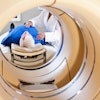
LONDON (Reuters Life!) - Online health information and disease-risk tests can mislead, confuse, and create needless anxiety, and governments should do more ensure the people who use them know what they are buying, U.K. experts said on Tuesday.
A report by a British medical ethics group said private DNA tests may be "medically or therapeutically meaningless" and could give false results or information that is "unclear, unreliable, or inaccurate."
The Nuffield Council on Bioethics called on the government to set up an accreditation scheme for providers of online health records, and for DNA testing and body scanning services to be better regulated to help protect consumers.
"The Internet is now often the first port of call for people to find out more about their health. People need to know where they can get accurate health information, how to buy medicines online safely, and how any personal information about their health posted online might be used," said Christopher Hood, one of the leading authors of the report.
The report also looked at direct-to-consumer personal genetic tests that say they can predict the risk of a person developing certain diseases in the future.
These tests, and body scanning services involving computed tomography (CT) or magnetic resonance imaging (MRI) scans, are often promoted online as health check-ups, the experts said.
"The reliability of these tests is questionable," Nikolas Rose, another of the report's authors, told reporters at a briefing. "And even if the tests were reliable, the increases in risk over that in the general population that are given to you by these tests are usually minimal, and in almost all circumstances they have no clinical relevance."
Online genetic tests are often marketed to people online as a way for them to find out their risks of developing serious conditions such as diabetes, heart diseases, Parkinson's, or cancer. Those who buy them are asked to provide a DNA sample, usually saliva, which is then analyzed.
Rose said that while people may find the results interesting, they were often meaningless, since in the majority of cases the small increased risk is something people can do nothing to change beyond seeking to live a generally more healthy lifestyle.
The report said direct-to-consumer ultrasound, CT, or MRI scans were often sold as a form of "health check-up" for people who have no symptoms. The experts expressed concern about the potential risks of radiation involved in these types of scans, and said that whole-body CT scans should be banned altogether.
The Council said that as of yet, no British-based firms offer private whole-body CT scans, but consumers should be advised to avoid them where they are offered, since "any potential benefits do not justify the potential harm caused by the radiation."
The report also said the scans may be hard to interpret and may often show up "abnormalities" that are actually harmless but could lead people to be anxious or to undergo further tests and treatments which may be risky and unnecessary.
By Kate Kelland
Source: http://link.reuters.com/fub28p
Nuffield Council on Bioethics, October 12, 2010.
Last Updated: 2010-10-12 10:59:25 -0400 (Reuters Health)
Related Reading
Congress surprised at lack of medical radiation oversight, February 26, 2010
Copyright © 2010 Reuters Limited. All rights reserved. Republication or redistribution of Reuters content, including by framing or similar means, is expressly prohibited without the prior written consent of Reuters. Reuters shall not be liable for any errors or delays in the content, or for any actions taken in reliance thereon. Reuters and the Reuters sphere logo are registered trademarks and trademarks of the Reuters group of companies around the world.


















